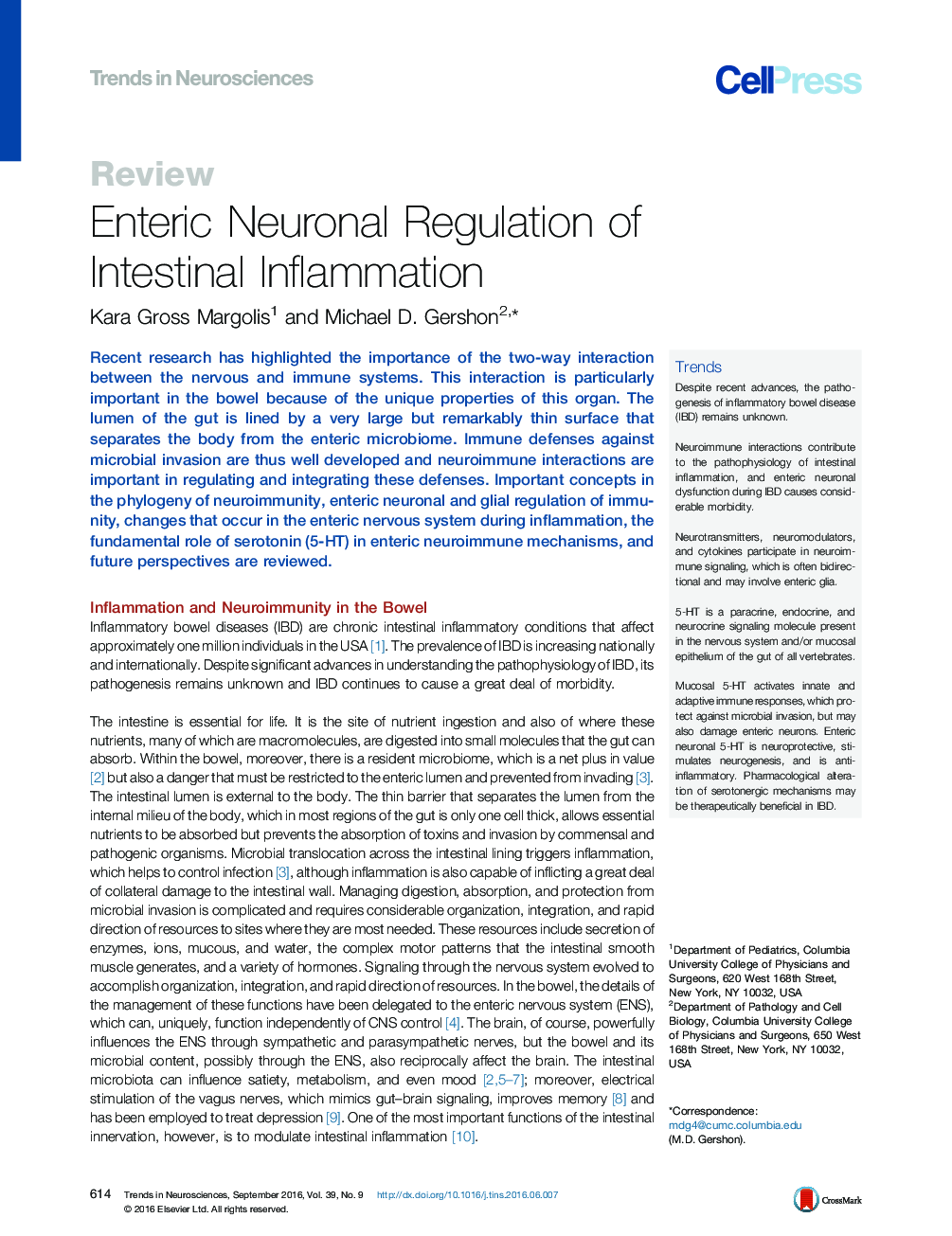| Article ID | Journal | Published Year | Pages | File Type |
|---|---|---|---|---|
| 4354090 | Trends in Neurosciences | 2016 | 11 Pages |
Recent research has highlighted the importance of the two-way interaction between the nervous and immune systems. This interaction is particularly important in the bowel because of the unique properties of this organ. The lumen of the gut is lined by a very large but remarkably thin surface that separates the body from the enteric microbiome. Immune defenses against microbial invasion are thus well developed and neuroimmune interactions are important in regulating and integrating these defenses. Important concepts in the phylogeny of neuroimmunity, enteric neuronal and glial regulation of immunity, changes that occur in the enteric nervous system during inflammation, the fundamental role of serotonin (5-HT) in enteric neuroimmune mechanisms, and future perspectives are reviewed.
TrendsDespite recent advances, the pathogenesis of inflammatory bowel disease (IBD) remains unknown.Neuroimmune interactions contribute to the pathophysiology of intestinal inflammation, and enteric neuronal dysfunction during IBD causes considerable morbidity.Neurotransmitters, neuromodulators, and cytokines participate in neuroimmune signaling, which is often bidirectional and may involve enteric glia.5-HT is a paracrine, endocrine, and neurocrine signaling molecule present in the nervous system and/or mucosal epithelium of the gut of all vertebrates.Mucosal 5-HT activates innate and adaptive immune responses, which protect against microbial invasion, but may also damage enteric neurons. Enteric neuronal 5-HT is neuroprotective, stimulates neurogenesis, and is anti-inflammatory. Pharmacological alteration of serotonergic mechanisms may be therapeutically beneficial in IBD.
